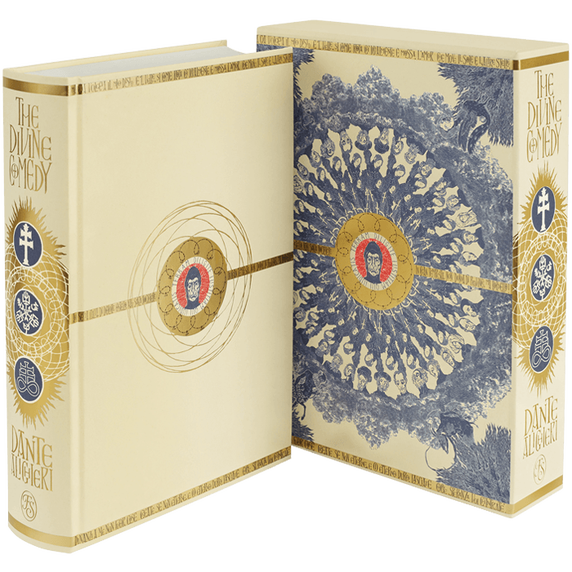
An exceptional Folio edition celebrating more than 700 years of Dante’s monumental work, The Divine Comedy is illustrated by Neil Packer and includes an exclusive essay by Jhumpa Lahiri.
Illustrated by Eri Griffin
Introduced by Carol Ann Duffy
Introduced by Poet Laureate Carol Ann Duffy, this anthology is a celebration of poetry and the passion it inspires. It gathers together more than 300 of our favourite poems, spanning over 400 years.
When Byron described poetry as ‘the feeling of a former world and future’, he perfectly summed up the power of great poems to speak to us across the ages. Introduced by Poet Laureate Carol Ann Duffy, this anthology is a celebration of poetry and the passion it inspires. It gathers together more than 300 of our favourite poems, spanning over 400 years from the Tudor court verse of John Skelton and Thomas Wyatt to Yeats’ ‘Politics’, first published in 1938.
Quarter-bound in cloth with Art Silk sides
Set in Baskerville
50 integrated black & white illustrations
480 pages
Plain slipcase
10˝ × 6¾˝
‘What would the world be, once bereft
Of wet and of wildness? Let them be left,
O let them be left, wildness and wet;
Long live the weeds and the wilderness yet.’
- Gerard Manley Hopkins, ‘Inversnaid’
This is a classic collection and a wonderful introduction to poetry, but it contains surprises even for the most well-read. There are famous works: Keats’s ‘To Autumn’, Byron’s ‘She walks in beauty’, Gray’s ‘Elegy Written in a Country Churchyard’, Marvell’s ‘To His Coy Mistress’ - and rarer gems: John Hoskins’s haunting ‘Absence, hear thou my protestation’, and ‘On a Bed of Guernsey Lilies’ by the 18th-century visionary Christopher Smart, as well as Kipling’s ‘The Explanation’, an allegorical love poem. The poems are listed alphabetically by title, creating interesting juxtapositions: William Cowper’s castaway’s lament ‘Alexander Selkirk’ is next to Richard Lovelace’s ‘To Althea, from Prison’, and Matthew Arnold’s ‘The Scholar Gypsy’ is followed by William Blake’s ‘The School Boy’. There are sonnets and epistles, complaints and elegies on every subject – love, war, nature, youth and the seasons, and even Thomas Gray’s ‘Ode on the Death of a Favourite Cat Drowned in a Tub of Goldfishes’.
‘When men were all asleep the snow came flying,
In large white flakes falling on the city brown’
- Robert Bridges, ‘London Snow’
